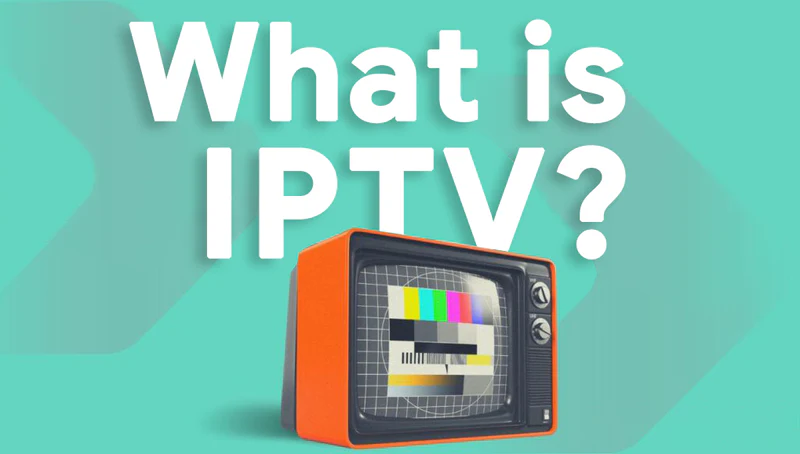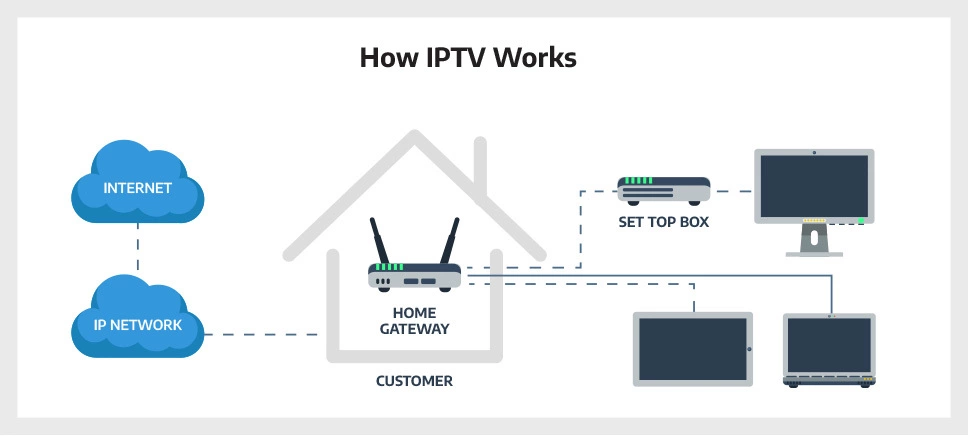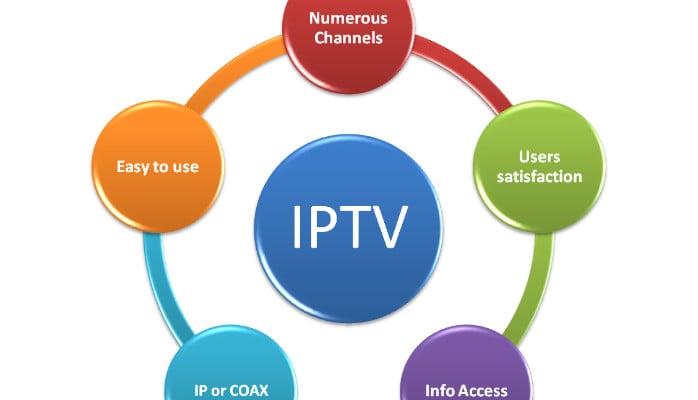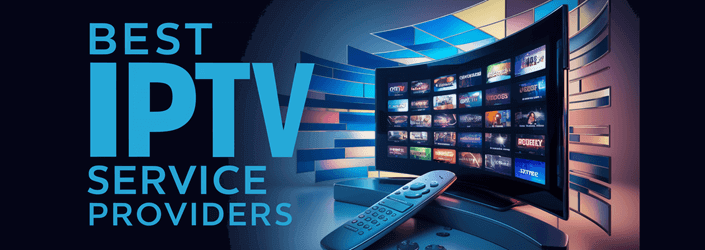In the digital age, television has undergone a significant transformation, moving from traditional cable and satellite services to internet-based streaming. IPTV, or Internet Protocol Television, has emerged as a popular alternative for accessing media content through the Internet. In this article, we’ll delve into what IPTV is, how it works, the benefits it offers, and the challenges it faces.
What is IPTV?
IPTV stands for Internet Protocol Television, a service that delivers television content over the Internet instead of traditional terrestrial, satellite, or cable formats. With IPTV, users can access TV shows, movies, and live broadcasts through an internet connection, often via an app or dedicated IPTV device.
IPTV differs from popular streaming platforms like Netflix or Hulu because it often includes live TV channels in addition to on-demand content. Services may vary from basic free channels to premium paid subscriptions that include live sports, news, and movie channels.
How Does IPTV Work?
IPTV transmits media content over the Internet using IP (Internet Protocol), allowing data to be broken into small packets and reassembled at the receiving end. Here’s a breakdown of how it functions:
1. Content Acquisition: The service provider acquires or produces media content, including live broadcasts, movies, and TV shows.
2. Content Encoding and Distribution: The content is compressed and encoded to reduce data size and enable efficient streaming. This data is sent to a content delivery network (CDN), which transmits the content to users over the Internet.
3. Playback on Devices: The user accesses the content via an IPTV app, set-top box, or smart TV. Once a channel or show is selected, the IPTV service sends the data to the device in real-time, streaming the content seamlessly.
IPTV services are typically categorized into three main types:
– Live Television: Allows users to watch broadcasts as they happen, just like traditional TV but over the internet.
– Video on Demand (VOD): Users select and stream videos from a vast library whenever they want.
– Time-shifted Media: Allows viewers to watch previously aired shows and events on-demand, typically within a set timeframe.
Benefits of IPTV
IPTV offers a variety of advantages over traditional TV services, making it a popular choice for consumers and service providers alike.
1. Greater Flexibility: IPTV users can access content on various devices, including smartphones, tablets, smart TVs, and computers, making it possible to watch media on the go.
2. Customized Viewing Options: With options for live TV, VOD, and catch-up TV, IPTV provides more control over what to watch and when to watch it. This customization aligns with today’s consumer demand for convenience.
3. Interactive Features: Many IPTV platforms offer interactive features such as real-time stats for sports, multi-language subtitles, and more. These enhancements provide an immersive experience that goes beyond traditional television.
4. Cost-Effective: In many cases, IPTV services can be more affordable than cable or satellite TV. Users only pay for the channels or content they want, and many IPTV providers offer packages tailored to different preferences and budgets.
5. Improved Quality: Thanks to advanced video compression technologies, IPTV can offer high-definition (HD) and even 4K streaming with minimal buffering when a stable internet connection is available.
Challenges Facing IPTV
While IPTV has numerous benefits, it also faces several challenges:
1. Reliability of Internet Connection: The quality of IPTV largely depends on a stable, high-speed Internet connection. Users with slower internet speeds may experience buffering, delays, or low video quality.
2. Legal Concerns: Some IPTV services operate without licenses to distribute copyrighted content, leading to legal issues and potential shutdowns. It’s essential for users to select reputable, licensed IPTV providers to avoid interruptions.
3. Geographical Restrictions: Some IPTV services restrict content based on geographical location due to licensing agreements, which can limit access to certain channels or shows.
4. Potential for Piracy: Unlicensed IPTV providers often stream pirated content, creating a risk for users. Aside from potential legal consequences, such platforms can compromise security and reliability, with lower-quality streams and potential malware risks.
5. Quality Variability: IPTV services vary in quality, depending on the provider’s network infrastructure and resources. Poor quality or less-established IPTV services may experience frequent outages, buffering, and lower picture quality.
The Growing Market for IPTV
The IPTV market has been expanding rapidly due to rising demand for internet-based TV services. The global IPTV market is projected to continue growing as internet penetration increases and more consumers opt for on-demand and customizable media experiences.
Several factors contribute to IPTV’s growth:
-Affordable Smart Devices: The availability of smart TVs, set-top boxes, and affordable mobile devices has made it easier for users to adopt IPTV.
– High-Speed Internet: As internet speeds increase, more people can access HD and 4K content without buffering, which improves the IPTV experience.
– Cord-Cutting Trend: Many users are switching from traditional cable TV to IPTV to avoid long-term contracts and high costs, fueling a global trend toward “cord-cutting.”
– Personalization and Integration: IPTV services integrate with popular apps and offer personalized recommendations, encouraging consumers to explore internet-based viewing options.
Choosing the Right IPTV Service
When selecting an IPTV provider, it’s essential to consider factors such as:
– Content Variety: Look for a provider that offers the channels and on-demand content you want.
– Device Compatibility: Ensure that the IPTV service is compatible with your devices, whether.
Future Trends in IPTV
As the IPTV landscape evolves, several trends are shaping its future:
1. Enhanced Personalization: IPTV providers are increasingly utilizing AI and machine learning to offer personalized content recommendations based on user viewing habits. This means users can expect more tailored experiences, making it easier to discover new shows and channels that match their interests.
2. Integration of OTT Services: Over-the-top (OTT) services like Netflix, Hulu, and Amazon Prime Video are beginning to integrate with IPTV platforms. This hybrid model allows users to access both live TV and on-demand content from various sources in a single interface, enhancing the convenience and appeal of IPTV.
3. 5G Technology: The rollout of 5G networks promises to significantly enhance IPTV streaming quality. With faster speeds and lower latency, users will be able to stream high-definition and 4K content without buffering, even in mobile scenarios.
4. Cloud-Based Solutions: Many IPTV providers are moving towards cloud-based platforms, which offer scalability and flexibility. Cloud solutions allow for better content management and delivery, enabling providers to quickly adapt to changing user demands and preferences.
5. Interactive Content and Features: Future IPTV services may incorporate more interactive features, such as social viewing experiences, where users can watch shows with friends and family remotely or engage in real-time discussions. This aligns with the growing trend of social media integration and community-driven viewing experiences.
6. Increased Focus on Security: As the IPTV market grows, so do concerns regarding security and piracy. Providers will likely invest more in encryption and secure streaming technologies to protect their content and ensure a safe viewing environment for users.
Tips for a Better IPTV Experience
To maximize your IPTV experience, consider the following tips:
– Ensure a High-Speed Internet Connection: Invest in a reliable and fast internet connection. Consider using a wired connection via Ethernet for more stability, especially when streaming high-definition content.
– Optimize Your Network: Limit the number of devices using your internet connection simultaneously to reduce bandwidth strain. You can also prioritize your IPTV device in your router settings.
– Use a VPN When Necessary: If you encounter geographical restrictions or wish to enhance your privacy, consider using a reputable VPN service that can mask your IP address and allow access to blocked content.
– Keep Your Devices Updated: Regularly update your IPTV app, smart TV, or streaming device to ensure you have the latest features and security patches.
– Explore Multiple IPTV Providers: Don’t hesitate to try out different IPTV services before committing to a long-term subscription. Many providers offer trial periods, allowing you to evaluate their content offerings and user interface.
Conclusion: Embracing the IPTV Revolution
As we look toward the future of television, IPTV stands out as a leading force in shaping how we consume media. With its numerous advantages over traditional cable and satellite services, such as flexibility, interactivity, and cost-effectiveness, it’s no wonder that more consumers are turning to IPTV as their primary source of entertainment.
As technology continues to advance, IPTV is likely to become even more integrated into our daily lives, providing richer, more immersive viewing experiences. By staying informed and adapting to the changes in this dynamic landscape, users can take full advantage of the exciting possibilities that IPTV offers.
For those looking to dive into IPTV, remember to choose a reputable provider, ensure a strong internet connection, and explore the vast array of content available to enhance your viewing pleasure.






3 thoughts on “Understanding IPTV”
Comments are closed.